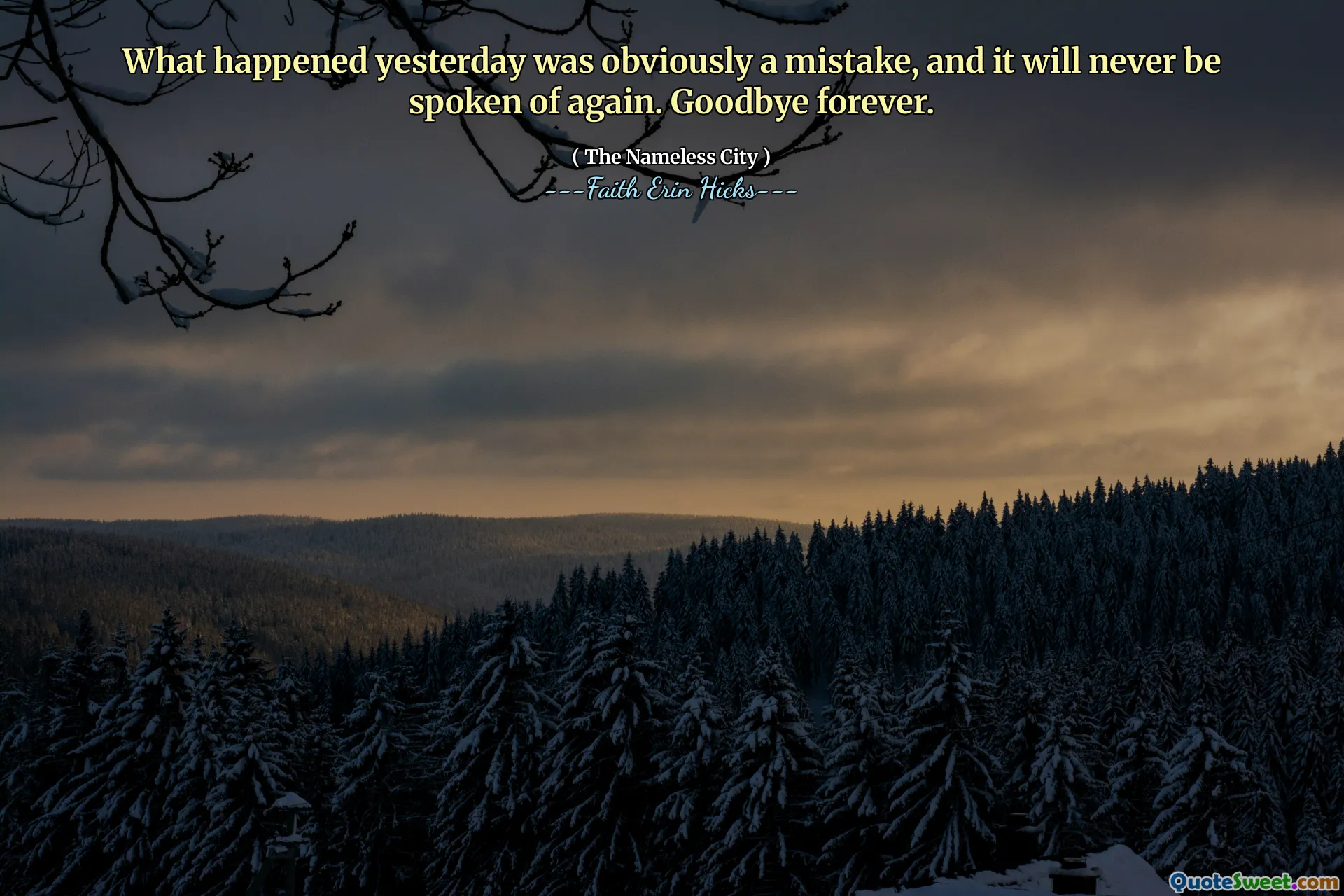
What happened yesterday was obviously a mistake, and it will never be spoken of again. Goodbye forever.
This quote evokes a sense of finality and denial, suggesting that an event deemed a mistake is to be buried and forgotten. It highlights a common human tendency to conceal regret or inconvenient truths, possibly to preserve one's reputation or mental peace. The phrase ‘never be spoken of again’ demonstrates an desire to erase the incident completely, reflecting an attitude of avoiding accountability or confronting uncomfortable realities. In many narratives, such statements reveal underlying themes of denial, suppression, or avoidance—facing the past can be painful, so the inclination is to move forward by negating what happened. This can be both a coping mechanism and a barrier to growth, as refusing to acknowledge mistakes prevents learning and healing. The emotional tone also hints at regret or emotional harm, perhaps suggesting that the individual truly wishes to leave everything behind. The phrase ‘Goodbye forever’ adds a sense of finality, underlining that this event has created a lasting impact, whether regretful or destructive. Such a perspective may resonate with characters in stories who attempt to escape from their pasts, or with individuals who choose to forget painful experiences rather than confront them. Philosophically, it raises questions about the nature of memory, responsibility, and forgiveness. Is erasing the past truly possible or healthy? Or does it merely delay necessary reflection? Overall, this quote encapsulates complex human emotions surrounding mistake, memory, and the desire for closure—an often tumultuous internal conflict faced by people in both fiction and real life.


